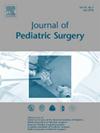Prolonged Psychological Burden on Parents Following Home-based Anal Dilation for Anorectal Malformation
IF 2.4
2区 医学
Q1 PEDIATRICS
引用次数: 0
Abstract
Aim
Assess parents' experiences with home-based anal dilations in children with anorectal malformation (ARM).
Methods
Parents of children with ARM who had undergone home dilations (n = 240) were invited to complete the Impact of Event Scale (IES) questionnaire to measure post-traumatic stress symptoms (PTSS) and a study-specific form. Thematic analysis of free-text responses was done following Braun & Clarke's method. Ethical approval was obtained.
Results
142 parents (59 % mothers) of 97 ARM children participated. The mean duration of home dilation was 4.5 months (SD 3.6) with a median time since the last dilation of 10 (0–20) years. 136 parents completed the IES questionnaire; 83/136 (61 %) presented PTSS. 40/136 (29 %) had moderate and 15/136 (11 %) severe symptoms. Mothers had higher average IES scores than fathers (17 vs 9, maximum score 75, p = 0.04). Parents who performed dilations exclusively preoperatively had less PTSS than those who did so postoperatively (7 vs 18, p = 0.03). 40 % had wanted more comprehensive training and support, and 43 % preferred healthcare professionals to perform dilations. Home dilations were prematurely terminated in one third of children because parents could not cope. Thematic analysis revealed three major themes: Emotional impact of the dilation procedure, Practical challenges performing dilations and Need for support and training.
Conclusion
Many ARM parents continue to experience PTSS long after completing home-based dilations. These results show that parents need better practical and psychological support when performing dilations. Parents who find the procedure very stressful should be offered to not do the dilations, and alternative solutions must be proposed.
肛肠畸形家庭肛管扩张术后父母长期的心理负担
目的探讨肛肠畸形(ARM)患儿家长在家进行肛门扩张治疗的经验。方法采用事件影响量表(IES)对240例接受过家庭扩张治疗的ARM患儿的家长进行创伤后应激症状(PTSS)问卷调查,并填写一份研究专用表格。主题分析是在Braun &;克拉克的方法。获得伦理批准。结果97例ARM患儿142名家长(59%为母亲)参与调查。家庭扩张的平均持续时间为4.5个月(SD 3.6),距离最后一次扩张的中位时间为10(0-20)年。136名家长填写了IES问卷;83/136(61%)为PTSS。40/136(29%)有中度症状,15/136(11%)有重度症状。母亲的平均IES得分高于父亲(17比9,最高得分75,p = 0.04)。术前单纯行扩张术的父母ptsd发生率低于术后(7 vs 18, p = 0.03)。40%的人希望得到更全面的培训和支持,43%的人更喜欢医疗保健专业人员进行扩张。由于父母无法应付,三分之一的孩子过早终止了家庭扩张。专题分析揭示了三个主要主题:扩张术的情绪影响、实施扩张术的实际挑战以及支持和培训的需求。结论:许多ARM父母在完成家庭扩张后很长时间内仍会经历ptsd。这些结果表明,父母在进行扩张术时需要更好的实践和心理支持。如果家长觉得这个过程压力很大,应该建议他们不要进行扩张,并提出其他解决方案。
本文章由计算机程序翻译,如有差异,请以英文原文为准。
求助全文
约1分钟内获得全文
求助全文
来源期刊
CiteScore
1.10
自引率
12.50%
发文量
569
审稿时长
38 days
期刊介绍:
The journal presents original contributions as well as a complete international abstracts section and other special departments to provide the most current source of information and references in pediatric surgery. The journal is based on the need to improve the surgical care of infants and children, not only through advances in physiology, pathology and surgical techniques, but also by attention to the unique emotional and physical needs of the young patient.

 求助内容:
求助内容: 应助结果提醒方式:
应助结果提醒方式:


